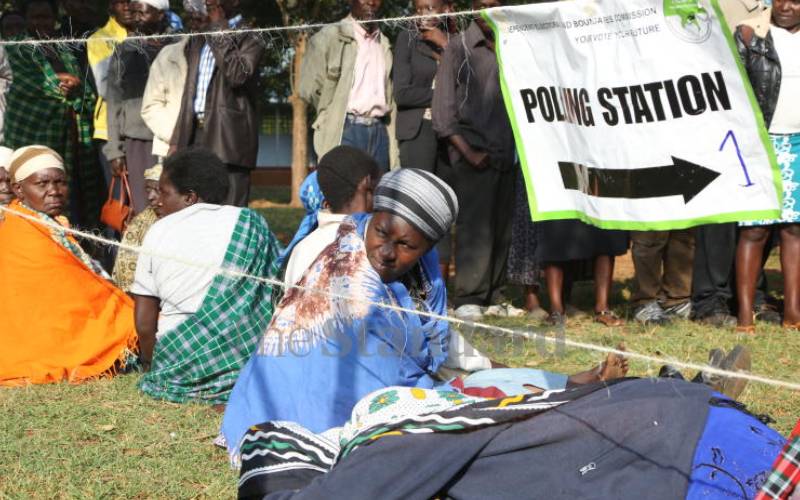×
The Standard e-Paper
Fearless, Trusted News

Voters queue to cast their votes at Ratta Primary School in Seme, Kisumu County. August 2017. [Collins Oduor, Standard]
Article 238 of the Constitution says national security is the protection against internal and external threats to Kenya’s territorial integrity and sovereignty, its people, their rights, freedoms, property, peace, stability and prosperity, and other national interests.